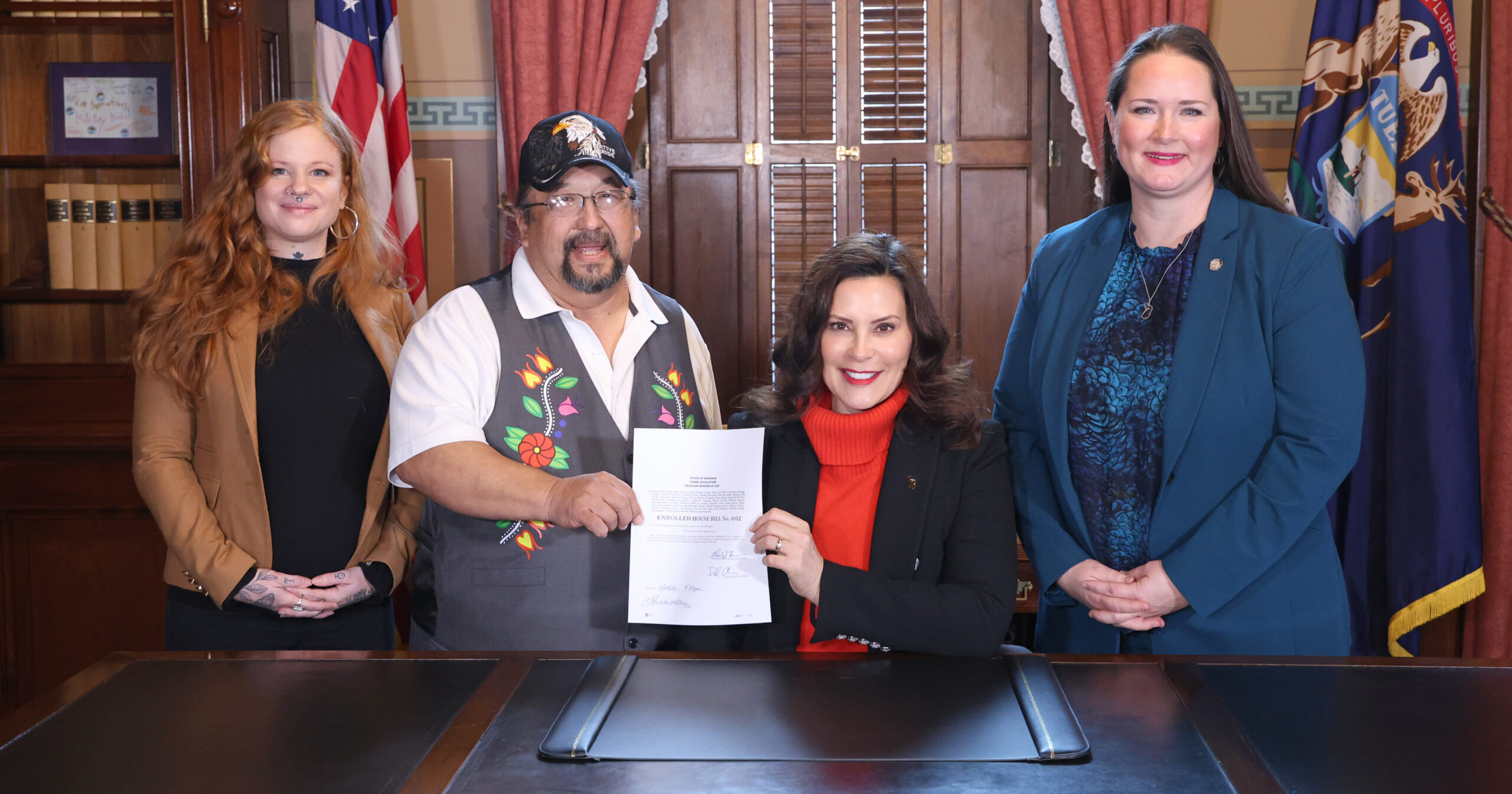LANSING, Mich., Dec. 5, 2023 — Gov. Gretchen Whitmer held a ceremonial bill signing event at the Capitol today, and House Bill 4852 was among the bills signed. This bill designates manoomin as the state’s official native grain.
“It was an honor to sponsor this bill that designates manoomin as the state’s native grain,” said state Rep. Carrie Rheingans (D-Ann Arbor). “The best policies are those that are created by the people that most directly experience the impact of those policies — tribe members across Michigan have worked for this designation for over two decades. Today is a celebration of their hard work, rich history and collaboration — moonomin is now officially our state native grain. I was honored to be joined today by Roger LaBine, an elder and rice keeper in the Lac Vieux Desert Band of Lake Superior Chippewa, who also serves as the Water Resources Technician for the tribe. He has worked for this designation for over two decades, and is a leading voice and advocate for the restoration of manoomin across tribal nations in the Great Lakes region.”
Manoomin, the Anishinaabe word for “good grain” or “good seed,” holds a prominent place in the history of the Anishinaabe people. According to Anishinaabe teachings, thousands of years ago, the Anishinaabe people followed a shell westward in the sky to find a place where food grows on water. They settled in the Great Lakes area when they found manoomin — a grain that grows on water — and fulfilled the prophecy. Manoomin historically and currently provides nutrition for many tribal nations across the Great Lakes region.
“Today was possible due to the many years that tribal leaders, elders, and rice keepers have worked to restore this sacred grain in Michigan’s waters and elevate its significance across the entire Great Lakes region,” Rheingans said.
This designation will enable the State of Michigan to support the stewardship plan currently in development by the Michigan Wild Rice Initiative to protect this vital resource that has long held cultural significance for Indigenous Michiganders.
###

